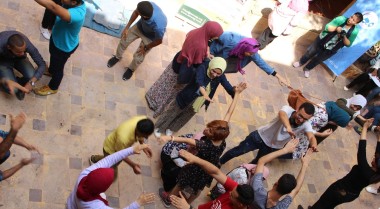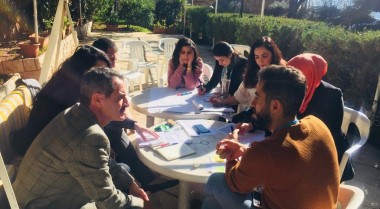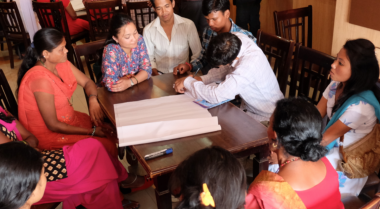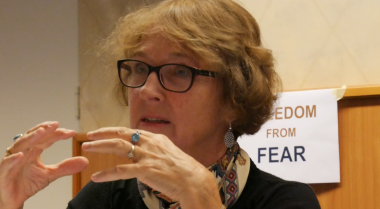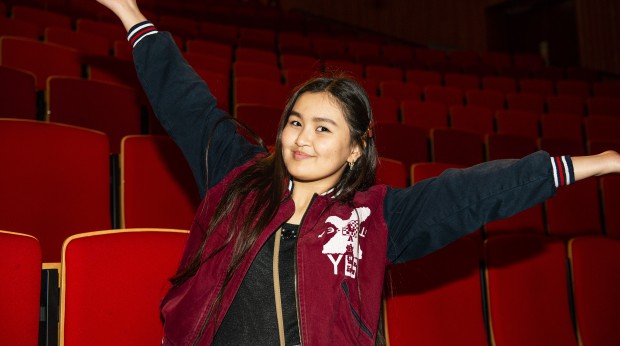
Building Peace from the Wreckage of Displacement
The Lebanese civil war, from 1975-1990 resulted in 150,000 deaths, injured 300,000 and lead to the emigration of almost one million people. It was one of the most devastating conflicts of the late 20th century. Today, Lebanon is still marred by inequality, by sectarian divides, with its precarious geo-political situation. The civil war first erupted because of clashes between the Christian militia and Palestinian factions over the Palestinian factions armed struggle against Israel from Lebanese territory. But the conflict changed rapidly into a fight over the Lebanese state and its political system.
A young man at the midst of the conflict, grew up to become a peacebuilder.
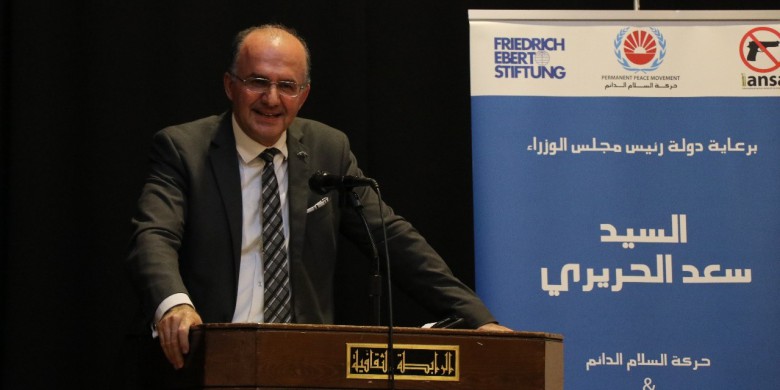
We all face our own mortality at different ages. I was eighteen. On the exodus from my mountain (al-Jabal) village to the city, when the possibility of being killed on the road was very present, I thought of my photos and cassettes, of school concerts and speeches. I experienced the earthquake of displacement with my mother, and so many others. This was Lebanon in 1983; the setting of a long and bitter civil war.
"Displacement is much more than loss of place; it is the loss of memories and the lack of explanation."
I remember thinking that if something bad should happen to me, I want to leave a mark. However, what was left after the displacement was a string of question marks. Displacement is much more than loss of place; it is the loss of memories and the lack of explanation. I was in deep shock, questioning the causes of this trauma; a period I can never forget.
As an 18-year-old village boy, dislocated to Beirut, I sought answers to my questions. For me, home was a place where coexistence (among Christians and Druze) was natural. I was one of few Christians who received education in a Druze school, and I never felt there was any serious difference between us. Perhaps this contributed to my first conviction that it is wrong to consider war as between two groups, one causing displacement and the other displaced. Both parties are victims.
In 1985, I enrolled in university in Lebanon and my options were limited: to affiliate with the militias, to emigrate, or to establish a movement. Growing up against the backdrop of a destructive civil war, my inclination towards reconciliation and the prevention of violent conflict grew with me. So, with a group of friends, we established a peace movement. We weren’t driven by knowledge or experience, but by a longing for peace and to end the civil war.
"It is wrong to consider war as between two groups, one causing displacement and the other displaced. Both parties are victims."
By the time we reached graduation, we took the momentous step of transforming our grassroots into the Permanent Peace Movement. The challenges and aspirations of its formation lie in the name. ‘Permanent’ reflects the ambition for sustainable and long-lasting peace; ‘Movement’ refers to the constantly evolving needs of people at the centre of conflict; and ‘Peace’ reinforces the heart of the operation.
Coincidentally, the peace movement was established on 21st September, 1989, which was declared the International Day of Peace by the UN in 2000. We have organised hundreds of conferences and activities, connecting various regional and international associations. Echoing my own experiences, we worked on a project in the Mount Lebanon villages, which suffered tremendously from the civil war. The project included 60 villages where we organised activities with the youth, and learnt more about the regions and their residents.
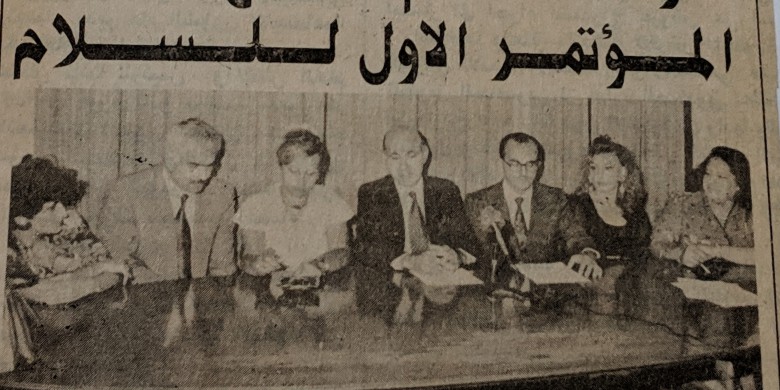
What ISIS (Daesh) does today is what warring parties have done in the past: moderates on all ‘sides’ are killed, whole villages are displaced, and homes, worship places, and even cemeteries are destroyed. Lebanon and I experienced all of this. In this sense, each war is ISIS. In the same sense, then, each war is surmountable.
I believe that peace work is the same as war work; war starts local and becomes international. It needs weapons, fights opponents, and relies on supporters; exactly like peace. So, it was from the wreckage of displacement that I started building peace, and it’s the young boy from the mountain village that demands me to continue.
"I believe that peace work is the same as war work; war starts local and becomes international."
Since its establishment in 1989, Permanent Peace Movement (PPM) works to prevent armed conflict and conflict resolution through:
-
Research and trainings
-
Controlling armament of small arms
-
Promoting transitional justice, facing the past and consolidating reconciliation in the post-war society
-
Human security
-
Promoting children’s rights and stopping the use of children in armed conflicts
-
Spreading the culture of non-violence so that it becomes a value and a human choice by itself
PPM work covers all the Lebanese regions as well as the Middle East and North Africa region.
All the above mentioned fields are important to build peace because all these components together help improve society in every aspect (culture, social, economical, etc) and eventually achieve peace. To achieve peace one should work on the mentality of people, the tools, and the system.
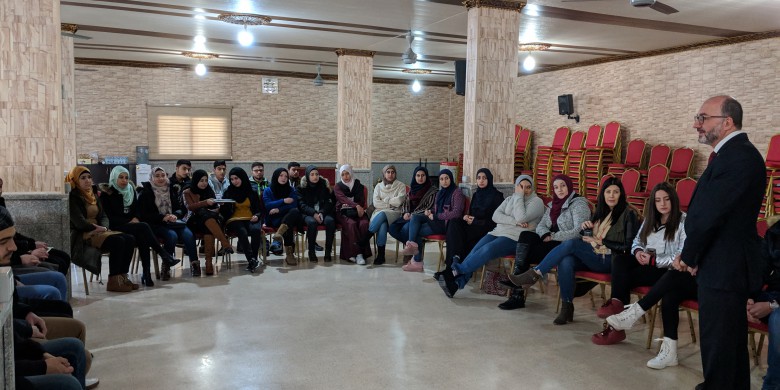
By mentality we mean not accepting violence; we can explain violence but we can’t justify it, we encourage non-violence and peaceful means of conflict resolution. Mentality, values, and culture are all core components to change society. PPM focuses on capacity building to change people from within.
The availability of firearms helps people who already have negative thoughts and believe in violence as a means for resolution to use them to do harm. That’s why PPM works on controlling small arms, weapons, and all kinds of arms especially as there is no system or control.
PPM works on the political system of the country by promoting democracy, International Humanitarian law, and Human Rights. We believe that influencing the country’s system will make a positive impact to prevent conflict.
PPM is GPPAC’s regional secretariat and coordinates the Middle East and North Africa network.
